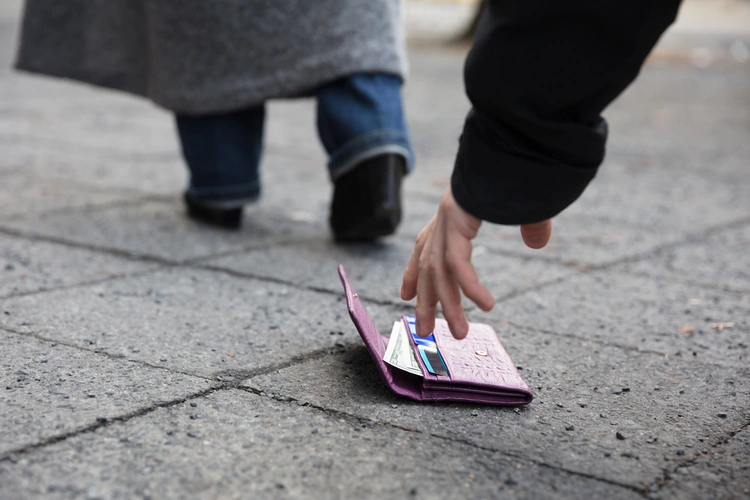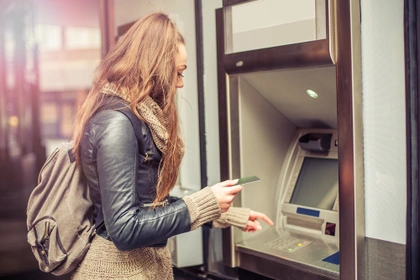The four most common credit card scams
Credit card fraud can happen in different ways, so it’s important to know what to look out for. Here are four of the most common credit card scams – and how to protect yourself from them.
Shoulder surfing
Scammers can watch you enter your PIN when you use an ATM or card machine. They may even try to steal your card right after you’ve used it. To stay safe, always cover the keypad when entering your PIN, even if no one is nearby. Be extra careful in busy or crowded areas.
Skimming
Skimming happens when a thief copies your credit card details using a small device called a ‘skimmer.’ They can use these details to shop online without needing your PIN. Always keep your card in your sight when handing it over, and if you’re in a restaurant or bar, ask to pay at the machine yourself.
Phishing scams (emails and texts)
Fraudsters often send fake emails or texts pretending to be from your bank or card provider. They’ll ask you to share your card details or click on a link to ‘verify’ your account. Remember, banks never ask for your PIN or full card number over email or text. If you're unsure, always call your bank using the number on the back of your card – not one in the message.
Phone scams
In phone scams, criminals pretend to be your bank or card provider, asking for your details. To avoid this, never share your card information over the phone unless you’ve made the call yourself.
How to prevent credit card fraud
- Don’t share your personal information. Never share your PIN - especially over the phone or online. If in doubt, contact your bank directly.
- Check your statements regularly. Review your statements for transactions you don’t recognise and report anything suspicious straight away. Remember to check contactless payments too.
- Keep your card in a safe place. Always keep your card in sight or securely stored. If it’s lost or stolen, report it immediately so your bank can cancel it.
- Be careful when shopping online. Only use trusted websites. Look for the padlock icon in the address bar and avoid using public Wi-Fi when entering your card details.
- If it sounds too good to be true, it probably is. Watch out for deals that seem too good to be true. Before paying, ask yourself:
❗Is this deal too good to be true?
❗ Have I heard of this store before?
❗ Is the payment page secure?
If you’re unsure, don’t make the purchase.
How to report credit card fraud
If you believe you’re a victim of credit card fraud, contact your card provider immediately. They can cancel your current card and issue a new one to prevent further theft. Most banks will refund you for any fraudulent transactions if you report them quickly – ideally within a few days.
It’s also a good idea to report issues to Action Fraud who can investigate it and work towards future prevention.
Stay one step ahead of scammers
Credit card fraud can happen to anyone, but knowing what to look out for can make a big difference. Stay alert, trust your instincts, and follow simple steps to protect your card and personal details.
If something doesn’t feel right – whether it’s an email, text, call or payment request – take a moment to double-check. And if you ever spot anything unusual on your credit card statement, contact your provider straight away. It’s always better to be safe than sorry.
Ocean Credit Card
See if it's a YES before you apply
- Up to £8,000 credit limit
- Checking won't affect your credit score
- Get a response in 60 seconds
Intelligent Lending Ltd (credit broker). Capital One is the exclusive lender.

Disclaimer: We make every effort to ensure content is correct when published. Information on this website doesn't constitute financial advice, and we aren't responsible for the content of any external sites.






